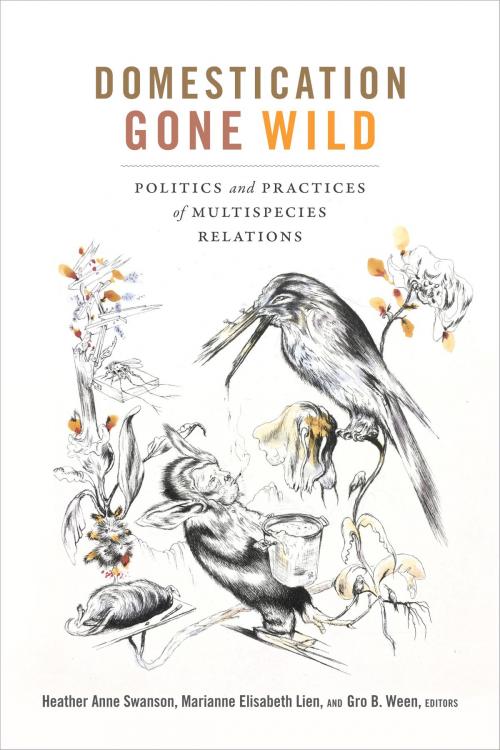Domestication Gone Wild
Politics and Practices of Multispecies Relations
Nonfiction, Science & Nature, Science, Biological Sciences, Environmental Science, Nature, Animals, Social & Cultural Studies, Social Science, Anthropology| Author: | ISBN: | 9780822371649 | |
| Publisher: | Duke University Press | Publication: | September 27, 2018 |
| Imprint: | Duke University Press Books | Language: | English |
| Author: | |
| ISBN: | 9780822371649 |
| Publisher: | Duke University Press |
| Publication: | September 27, 2018 |
| Imprint: | Duke University Press Books |
| Language: | English |
The domestication of plants and animals is central to the familiar and now outdated story of civilization's emergence. Intertwined with colonialism and imperial expansion, the domestication narrative has informed and justified dominant and often destructive practices. Contending that domestication retains considerable value as an analytical tool, the contributors to Domestication Gone Wild reengage the concept by highlighting sites and forms of domestication occurring in unexpected and marginal sites, from Norwegian fjords and Philippine villages to British falconry cages and South African colonial townships. Challenging idioms of animal husbandry as human mastery and progress, the contributors push beyond the boundaries of farms, fences, and cages to explore how situated relations with animals and plants are linked to the politics of human difference—and, conversely, how politics are intertwined with plant and animal life. Ultimately, this volume promotes a novel, decolonizing concept of domestication that radically revises its Euro- and anthropocentric narrative.
Contributors. Inger Anneberg, Natasha Fijn, Rune Flikke, Frida Hastrup, Marianne Elisabeth Lien, Knut G. Nustad, Sara Asu Schroer, Heather Anne Swanson, Anna Lowenhaupt Tsing, Mette Vaarst, Gro B. Ween, Jon Henrik Ziegler Remme
The domestication of plants and animals is central to the familiar and now outdated story of civilization's emergence. Intertwined with colonialism and imperial expansion, the domestication narrative has informed and justified dominant and often destructive practices. Contending that domestication retains considerable value as an analytical tool, the contributors to Domestication Gone Wild reengage the concept by highlighting sites and forms of domestication occurring in unexpected and marginal sites, from Norwegian fjords and Philippine villages to British falconry cages and South African colonial townships. Challenging idioms of animal husbandry as human mastery and progress, the contributors push beyond the boundaries of farms, fences, and cages to explore how situated relations with animals and plants are linked to the politics of human difference—and, conversely, how politics are intertwined with plant and animal life. Ultimately, this volume promotes a novel, decolonizing concept of domestication that radically revises its Euro- and anthropocentric narrative.
Contributors. Inger Anneberg, Natasha Fijn, Rune Flikke, Frida Hastrup, Marianne Elisabeth Lien, Knut G. Nustad, Sara Asu Schroer, Heather Anne Swanson, Anna Lowenhaupt Tsing, Mette Vaarst, Gro B. Ween, Jon Henrik Ziegler Remme















